Students will be admitted to the PhD Program according to the following criteria:
a) Master's degrees that give direct access to this doctorate (No training supplements).
Those students who have obtained a degree in any of the following Master's can directly access these studies:
- Master’s in Research into Medicine and Health Sciences from UAL.
- Master’s in Sexology Sciences from UAL. This Master’s is identified and therefore students would also have access from its previous editions: Master’s in Sexology and Master’s in Sexology: Sexual Education and the Sexological Clinic.
- Master’s in Nursing Sciences Research. This Master’s is identified and therefore students would also have access from its previous editions: Master’s in Nursing Sciences from UAL.
b) University graduates who, after obtaining a training place in the corresponding access test for specialized health training places, have successfully spent at least two years in a training program to obtain the official title of any of the Health Sciences specialties, and with the training supplements assessed by the Academic Committee, based on the student's curriculum.
c) Remaining access routes provided for by art. 6 of RD 99/2011.
Students accessing routes b) and c) must pass the training supplements determined by the degree’s Academic Committee for each study, from among those specified in section 3.4 of this report. These training supplements should preferably be completed in the first year of study and, in any event, before the end of studies. These supplements are expected to have a maximum of 24 ECTS.
The admission criteria will be the same for full-time and part-time students, who will have to establish and justify their time commitment in the admission application. In the event that the demand for admissions is greater than the places on offer, the following admission criteria will be used to select the applicants:
- Academic Record: 50%
- Curriculum vitae 30%
- Interview: 20%
For students with specific educational needs derived from disabilities, these systems and procedures will include the appropriate support and advisory services which assess the need for possible curricular adaptations, itineraries or alternative studies.








